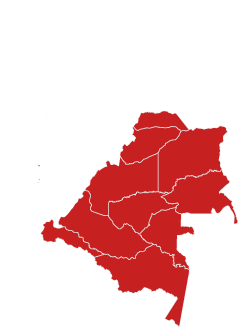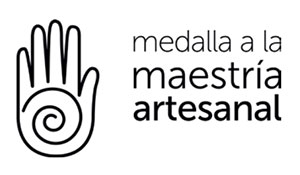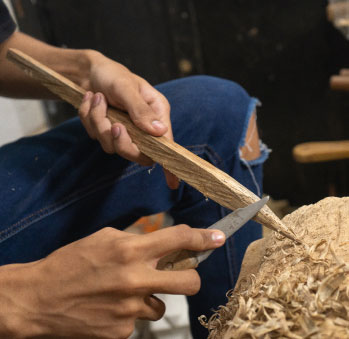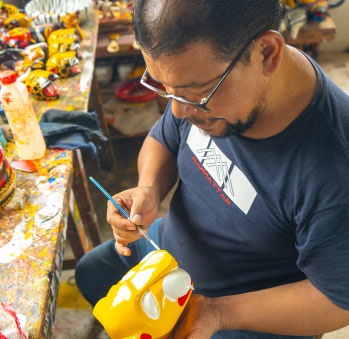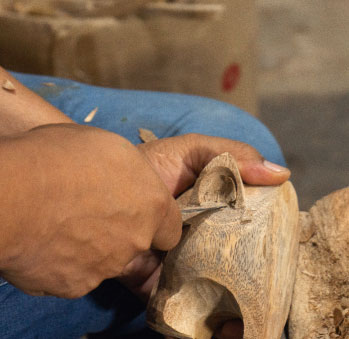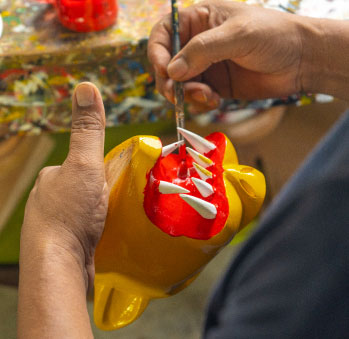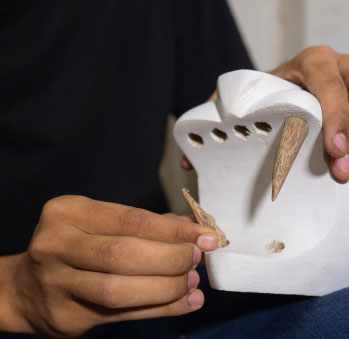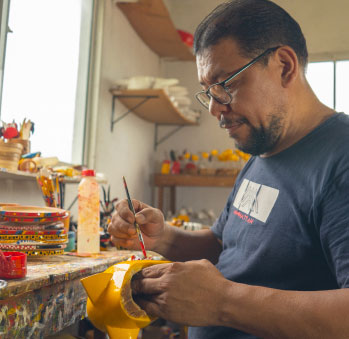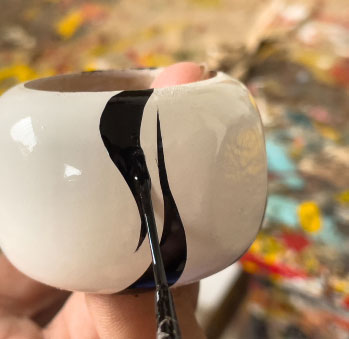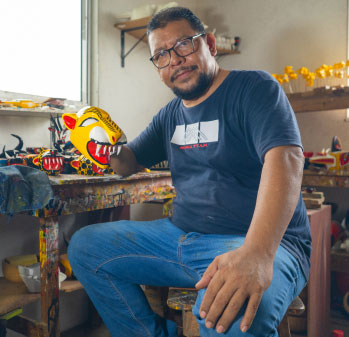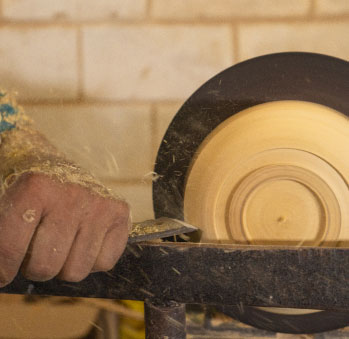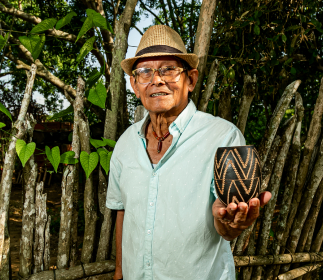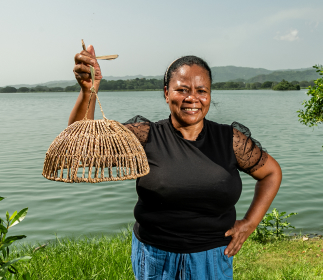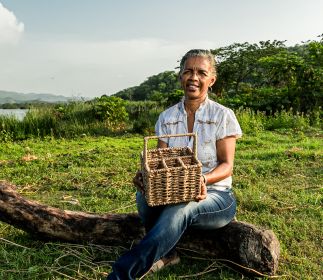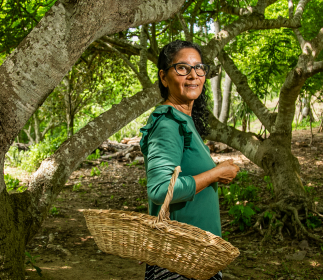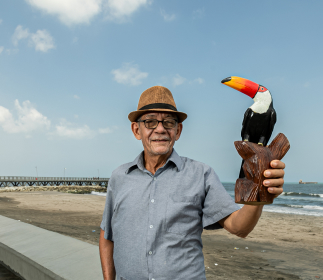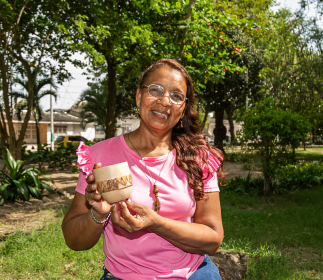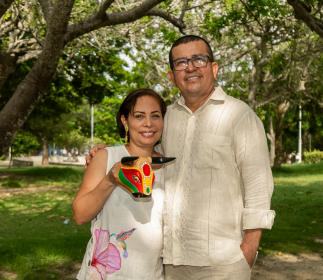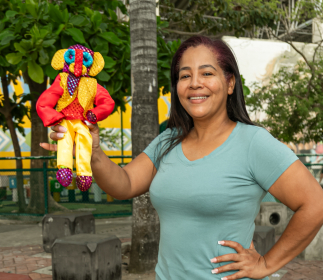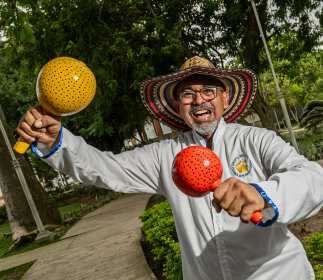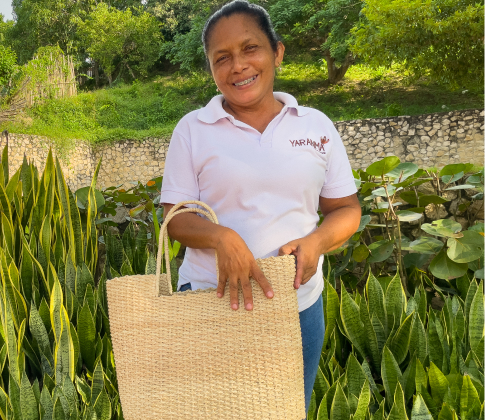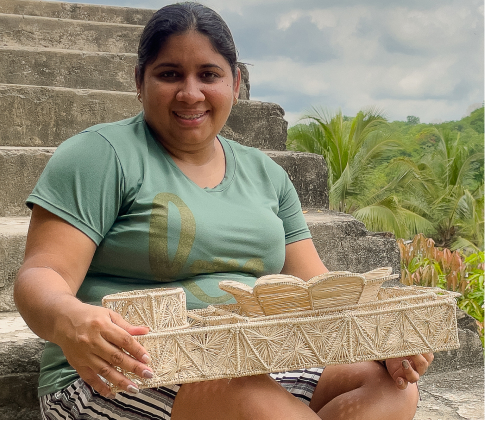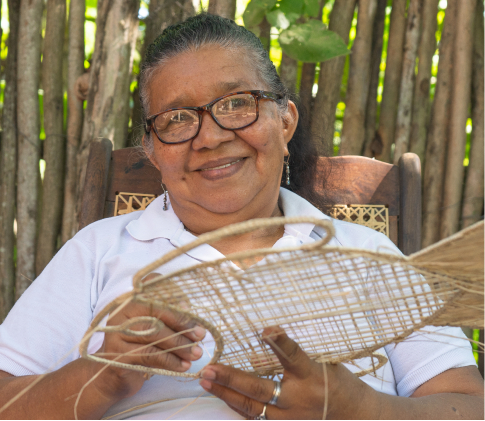Manuel Pertuz
One day, he was surprised by his father telling him that he would teach him how to craft masks. He did so upon seeing Manuel trying and failing over and over again at this task. Since his father worked as a civil servant for the Acueducto company, Manuel had no idea that he had these skills. He had a particular childhood memory about his father coming home with his friends. They carried trumpets, trombones, and drums; they sang and wore costumes; they enjoyed the Carnaval de Barranquilla (Barranquilla’s Carnival) to the fullest. What he did not know at the time was that their attire and the wonderful masks they wore had been made by Don Miguel himself. The donkey mask was the one he liked the most.
Thus, from that moment on, he decided to learn the craft that run through his veins: the dexterity his father used to make the architectural plans requested by the company he worked at. Manuel proudly says that he worked with his father for four years and that he hired him in his first workshop more than 37 years ago.
He taught him geometry, how to understand the volume of wood, and how to cut the latter properly. Then, he devoted himself to tracing the origins of these masks, which make up an important part of his people’s identity. He researched their ritual meanings, and how they came from Africa and settled on the banks of the Magdalena River, in the rebellious cimarrón towns.
He found out that men like Francisco Padilla decided to start crafting their own masks in Galapa to stop relying on the ones made in the neighboring town of Malambo. He also discovered that there were people in the Rebolo neighborhood, where he lives, who wanted to preserve an ancestral tradition.
Today, this tradition is loaded with religious content that, in the past, held a much larger spiritual charge: a celebration of beliefs. It is precisely this task of cultural preservation to which Manuel has devoted his life. He has chased this goal with a very clear intention that fills him with joy: to create seedbeds of craftspeople. He has been thorough with his learning of the trade: first with his father and later on with more specialized technical training that encouraged him to further develop the skills he had in his hands. All of this led him to receive the Medalla a la Maestría Artesanal (Crafts Mastery Medal) in the Tradicional y Maestro de Maestros (Traditional and Master of Masters) category.
He wants to continue doing what he does because nothing makes him happier than to have turned his project, Aula Creativa Artesanal (Creative Crafts Classroom), into a reality, helping to promote the development and the cultural identity of his people. One of his accomplishments has to do with the Maria Auxiliadora public school in Galapa: the kids who graduate from said institution do so with technical knowledge gained through the school’s Crafting Program. He has also intensely encouraged the enactment of a timber reforestation project in the region, considering that species such as the red ceiba tree —from where the wood with which traditional masks are crafted is harvested— are endangered.
This is his legacy, and he lives it every day. He does so through the school where he teaches, the words he speaks, and his workshop. He does so by displaying the bright colors of the people from the Caribbean on his masks, and the joy of the “boisterous costeño,” as he affectionately calls his kin. He likewise uses the firmness of his hands to paint tigers, which are the animals he likes to carve the most because “they are cautious, fully aware of their surroundings, and always tend to win, rather than lose.”
Craft
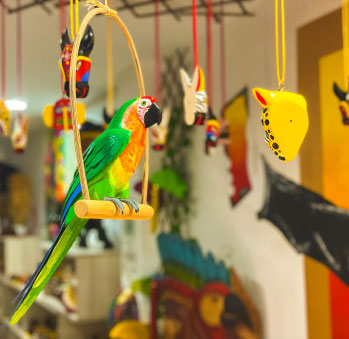
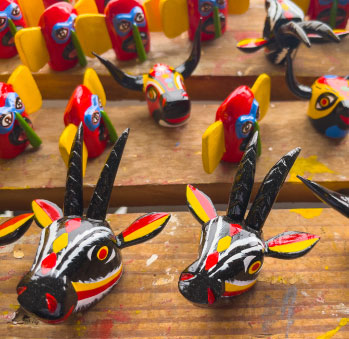
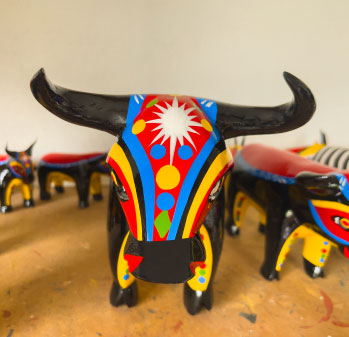
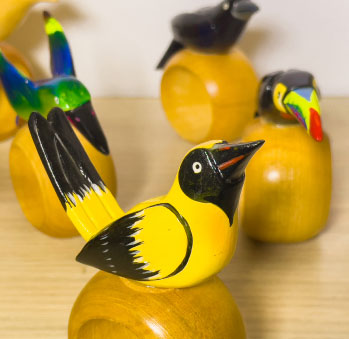
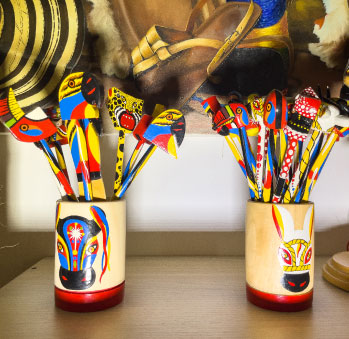





Artisans along the way
Artisans along the way
No puede copiar contenido de esta página

